
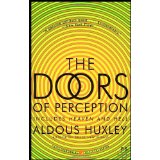


LSD has had a complicated history ever since a Swiss chemist, Dr. Albert Hoffman, discovered it by accident back in the 1940s. It was used by the CIA in experiments, by Hollywood stars in the 1950s, and was huge among the hippies and mind-adventurers in the 1960s. It was banned in the U.S. in 1966.
Now, another Swiss doctor, this time a psychiatrist named Dr. Peter Gasser. He is administering the drug to end-of-life patients, who are having mystical experiences and who reported less anxiety and a more positive approach to death. One patient said “I will say I have been more emotional since the study ended, and I don’t mean always cheerful……but I think it’s better to feel things strongly–better to be alive than to merely function”.
The New York Times piece was published yesterday. Here is the link:
http://www.nytimes.com/2014/03/04/health/lsd-reconsidered-for-therapy.html?_r=0
The article reminded me of Aldous Huxley, British novelist and visionary. His book The Doors of Perception was widely read in the 1960 and still is today; it chronicles his experience taking mescaline in the 1950s, while living here in Los Angeles. The band The Doors took its name from Huxley’s book.
As Huxley was dying here in late 1963, he asked his wife Laura to give him an injection of LSD so he could fully experience his own demise. On that dark day in history—when JFK was assassinated–Huxley reportedly died a death of serenity and bliss.
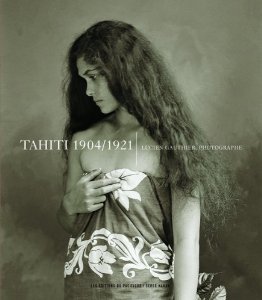
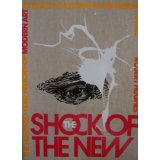
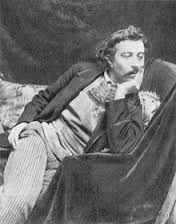
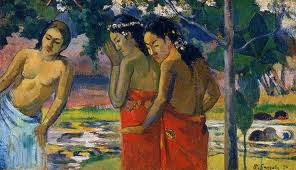
I’m reading Robert Hughes’ masterful art history book, The Shock of the New. It’s a dense, heavy, and amazing book. Reading about Gaughin’s Edenic paintings of Tahiti–which reminded me of French photographer Lucien Gauthier’s book Tahiti 1904-1921–I was sobered by Hughes’ assertion that Tahiti had already been ruined by alcoholism and venereal disease by the time the French painter arrived at the end of the 19th century. Read More →
The other night I read–well, actually just perused—Malinowski’s Kiriwina: Fieldwork Photography 1915-1918–an amazing book about the Polish-born father of modern cultural anthropology’s stay in Papua and the Trobiand Islands. He went to New Guinea and studied the inhabitants there with unprecedented rigor. I also listened to an Argentine pianist named Bruno Leonardo Gelber play Beethoven’s magnificent sonata #14, the 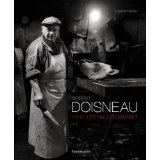 Moonlight Sonata. Then I turned to French photographer Robert Doisneau, looking at images he took of Les Halles, the famous French outdoor marketplace that dated back to the 14th century, only to be torn down in 1971 by President Pompidou to build the much-reviled Centre Pompidou / Beaubourg. Some called it an oil refinery posing as a cultural center, and many Parisians lamented the loss of the famous market. Read More →
Moonlight Sonata. Then I turned to French photographer Robert Doisneau, looking at images he took of Les Halles, the famous French outdoor marketplace that dated back to the 14th century, only to be torn down in 1971 by President Pompidou to build the much-reviled Centre Pompidou / Beaubourg. Some called it an oil refinery posing as a cultural center, and many Parisians lamented the loss of the famous market. Read More →
I was a literature major in college, also a French major, so I could read Samuel Beckett’s novels and plays in both French and English. His plays used a literary device called “stichomythia”, which had characters speaking short lines back and forth, so it was easy to read in French. Beckett, like Joseph Conrad or Vladimir Nabokov, wrote in another language than his mother tongue; Beckett was Irish even though he’s more associated with French literature. After all, his 1953 play En Attendant Godot –Waiting for Godot–catapulted him to French fame. Read More →
George Whitman just died at the ripe old age of 98. He took over the famous Left Bank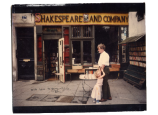
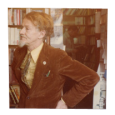
 bookstore, Shakespeare & Co., after the the original owner, Sylvia Beach, left it at the onset of World War II. She ran it as a publishing company that famously published James Joyce’s revolutionary novel Ulysses in 1922. The book was banned in the U.S., no American publisher would publish it. It was considered obscene. But what is considered obscene in America is often considered great literature or art in Paris. George Whitman took over the book store part after she left and ran it pretty much until he was in his 90s and infirm; his daughter then took over.
bookstore, Shakespeare & Co., after the the original owner, Sylvia Beach, left it at the onset of World War II. She ran it as a publishing company that famously published James Joyce’s revolutionary novel Ulysses in 1922. The book was banned in the U.S., no American publisher would publish it. It was considered obscene. But what is considered obscene in America is often considered great literature or art in Paris. George Whitman took over the book store part after she left and ran it pretty much until he was in his 90s and infirm; his daughter then took over.
I got to know George Whitman while in Paris in 1970 and a student at the Sorbonne. Read More →
 I wanted to alert you to a nice articule in today’s LA Times, “Bhutan Rejoices as King Marries Student”. I’m sending this because last Sunday we featured on my show an interview with Lisa Napoli on her wonderful book Radio Shangri-La: What I Learned in Bhutan, the Happiest Place on Earth.
I wanted to alert you to a nice articule in today’s LA Times, “Bhutan Rejoices as King Marries Student”. I’m sending this because last Sunday we featured on my show an interview with Lisa Napoli on her wonderful book Radio Shangri-La: What I Learned in Bhutan, the Happiest Place on Earth.
http://www.kcrw.com/music/programs/cl/cl111009lisa_napoli
We listened to all sorts of music from this remote and little-known country. Read More →
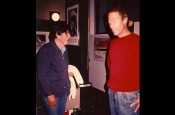
I just read a review of a new John Cage biography in the New York Times Book Review. I ordered the book, John Cage / Begin Again, by Kenneth Silverman, and it just arrived today.
Cage influenced people who don’t even know who he is. And then there are folks like Brian Eno and Ryuichi Sakamoto, both of whom owe huge debts to Cage’s thinking on music and sound. And music sampling, cannibalism, noise effects, and silence: these are all sonic and conceptual territories explored by the late composer. Read More →









 Moonlight Sonata. Then I turned to French photographer Robert Doisneau, looking at images he took of Les Halles, the famous French outdoor marketplace that dated back to the 14th century, only to be torn down in 1971 by President Pompidou to build the much-reviled Centre Pompidou / Beaubourg. Some called it an oil refinery posing as a cultural center, and many Parisians lamented the loss of the famous market.
Moonlight Sonata. Then I turned to French photographer Robert Doisneau, looking at images he took of Les Halles, the famous French outdoor marketplace that dated back to the 14th century, only to be torn down in 1971 by President Pompidou to build the much-reviled Centre Pompidou / Beaubourg. Some called it an oil refinery posing as a cultural center, and many Parisians lamented the loss of the famous market. 

 bookstore, Shakespeare & Co., after the the original owner, Sylvia Beach, left it at the onset of World War II. She ran it as a publishing company that famously published James Joyce’s revolutionary novel Ulysses in 1922. The book was banned in the U.S., no American publisher would publish it. It was considered obscene. But what is considered obscene in America is often considered great literature or art in Paris. George Whitman took over the book store part after she left and ran it pretty much until he was in his 90s and infirm; his daughter then took over.
bookstore, Shakespeare & Co., after the the original owner, Sylvia Beach, left it at the onset of World War II. She ran it as a publishing company that famously published James Joyce’s revolutionary novel Ulysses in 1922. The book was banned in the U.S., no American publisher would publish it. It was considered obscene. But what is considered obscene in America is often considered great literature or art in Paris. George Whitman took over the book store part after she left and ran it pretty much until he was in his 90s and infirm; his daughter then took over.
